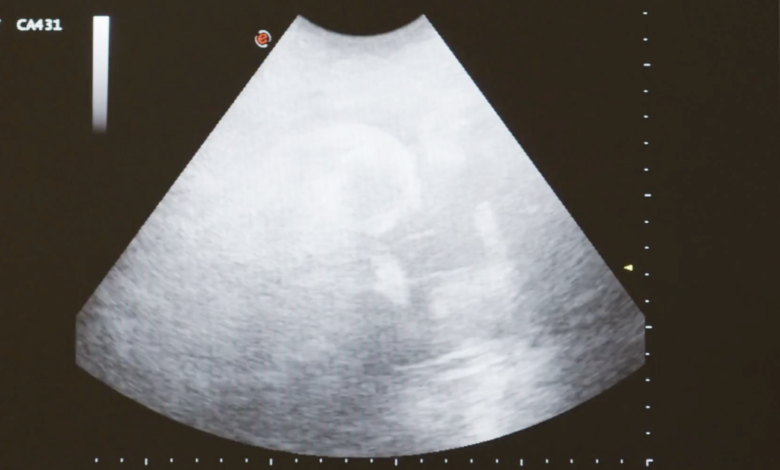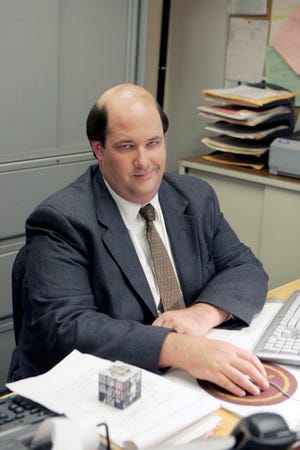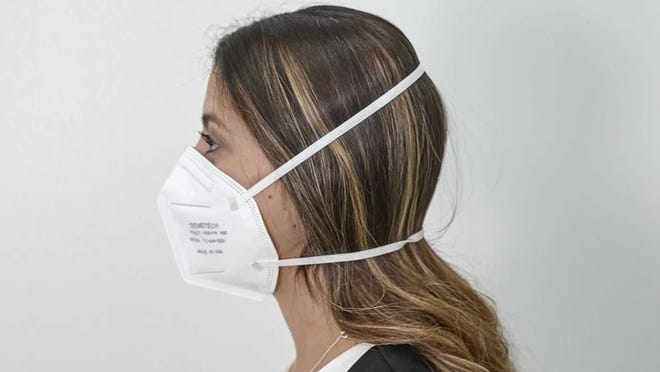
DENVER — Miscarriages are more common than many people realize. It's something some women come to understand after personally experiencing one.
Meaghan Elek has talked about becoming pregnant for years. At 36 years old she thought her dreams were coming true.
“I would actually say my journey goes back to probably when I was 18. I wanted a child my whole entire life. I felt this urgency to become a mother," Elek said. “This whole past year I did a lot of traveling I was just happy, one of the happiest I’ve ever been in my life and somehow all of a sudden I just became pregnant while I was in the road in Mendocino California."
Her excitement didn’t last long because things quickly took a turn.
“During my travels I had went to a family wedding in Chicago and of course the first time I put myself at risk in a huge situation I thought to myself this is where I’m going to catch COVID and I did," Elek said. “I had caught COVID and went back home to Michigan to see my family and I started bleeding and I started freaking out. I started bleeding like really heavily for 12 hours, it was probably some of the most pain I’ve ever been in.”
She went to the emergency room and had multiple ultrasounds.
“And that’s when the doctor came back and stated ya know there's no baby anymore," Elek said. “At that moment my heart dropped and that’s when we started having the conversation was COVID the cause of my miscarriage?”
Her doctor explained there was no guaranteed answer if COVID-19 affected Meaghan’s pregnancy or not, but Dr. Beth Carewe, an OBGYN at Rose Medical Center, explains most of the time miscarriages are completely out of our control.
“Miscarriages are often because either a chromosomal problem or a very early structural problem," Carewe said.
Elek learned miscarriages are more common than many people realize once she experienced one herself. According to the mayo clinic about 10 to 20 percent of known pregnancies end in miscarriage.
“I think that clinically recognized is really important because sometimes miscarriages happen when women don’t even know about it or there is this stigma around miscarriage so when it happens women aren’t telling their doctors or aren’t telling their friends or family about it," Carewe said.
Carewe explains their best estimate is that 1 in 4 women experience a miscarriage. That’s something Meaghan says she didn't know until she started to open up.
“It’s a lot for any woman to go through, and I realized the more I talk about it, the more women came forward, more of my friends came forward told me their stories, my cousin came forward and told me her story," Elek said.
Some women say they feel a stigma around miscarriage, a sense of failure.
“So fast forward about 2 months after I miscarried, my partner ended up leaving me," Elek said. “I had some internal struggle around COVID. Like definitely when my doctor brought that up I was like should I have not went to that wedding? Would I have not caught covid?", Elek questioned.
Elek says she definitely beat herself up with guilt.
“I always say that when you have a miscarriage you go through all the stages of grief and one of those stages is guilt and as women maybe we tend to have more a tendency to stay in that guilt a little longer and feel like there’s something wrong with me, or I did something wrong or I didn’t do something right," Carewe said. “feel the guilt, know that it’s normal to feel that but just don’t stay there very long because we have no power over all of the teeny tiny microscopic cellular divisions happening in our bodies. There is nothing we can do or don’t do in this big world that can affect the teeny tiny things happening inside of our uteruses.”
Carewe explains they don’t actually consider a miscarriage a problem or a pathology until a woman has 3 miscarriages.
“We know that they are so common and that a single miscarriage or even two miscarriages really doesn’t reflect on a woman’s ability to carry a pregnancy," Carewe said.
Elek says there's a lot she wouldn’t have known if it wasn't for the conversations she’s had which is something she says needs to happen more often to eventually remove the stigma.
“Although I never had my child I still became a mother in a way so just sitting with that, knowing like I still became a mother even though I didn’t have my child. Means a lot," Elek said.
If you'd like to learn more about Elek's journey, you can follow her on instagram at @simplymeaghan








